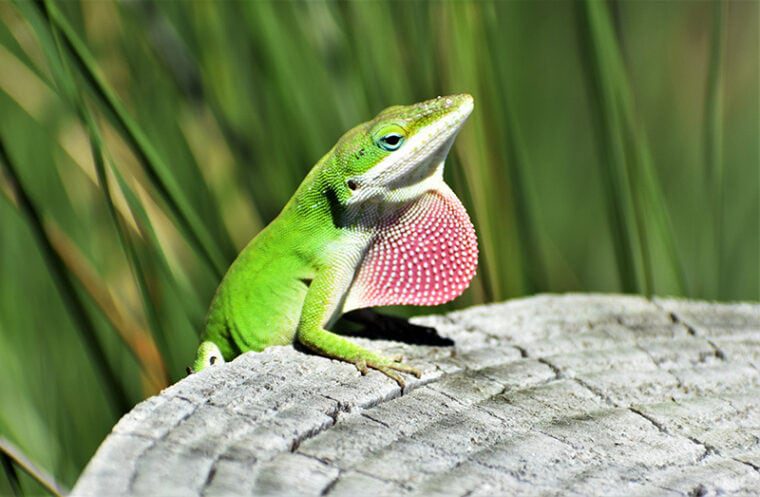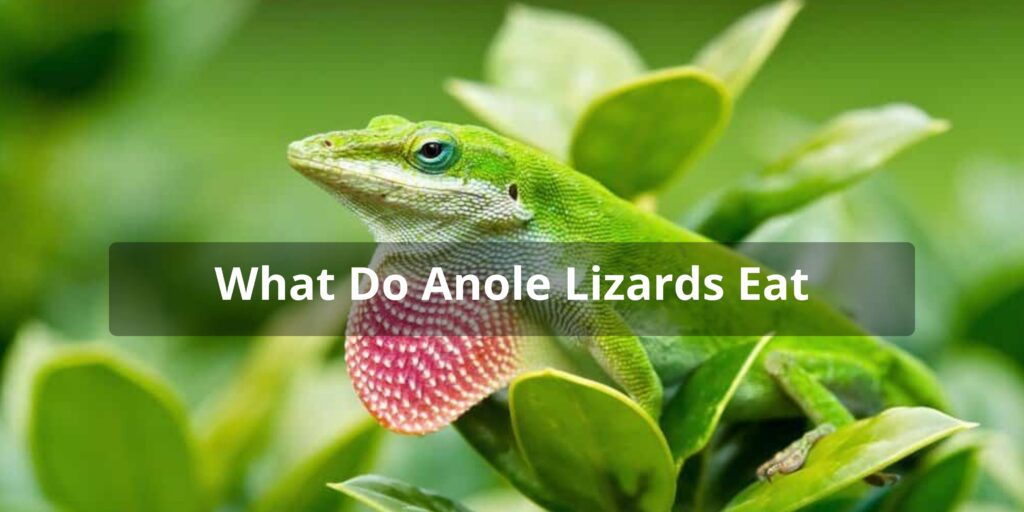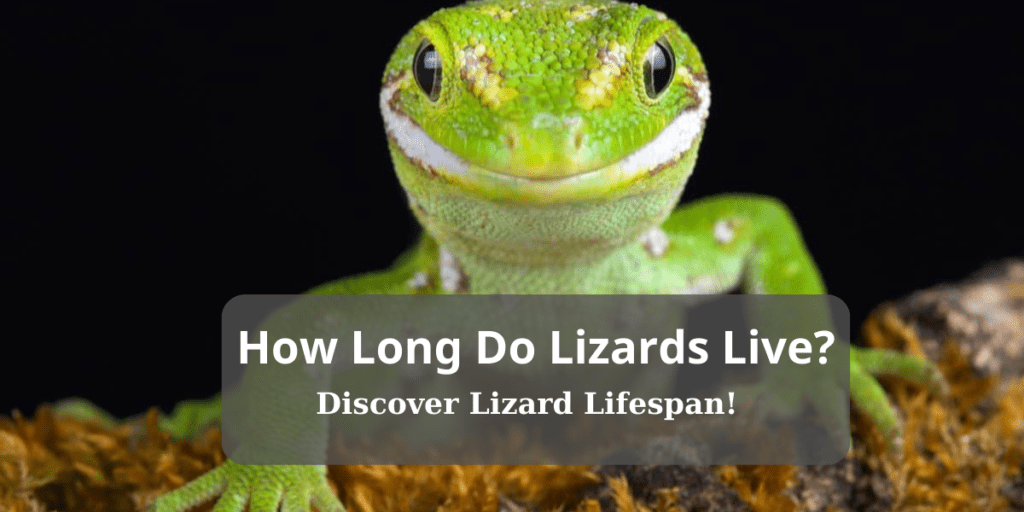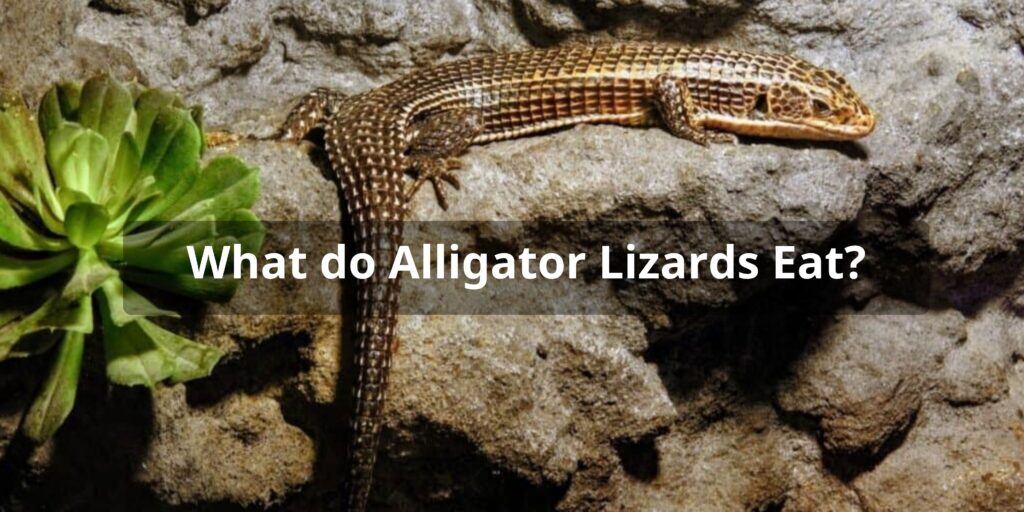Anole lizards are fascinating creatures known for their vibrant colors, quick movements, and lively nature. If you’re a proud owner of an anole lizard or considering getting one as a pet, it’s crucial to understand their dietary needs. Proper nutrition plays a vital role in their overall health and well-being. In this article, we will dive into the world of anole lizard diets, exploring their preferred food choices, how often to feed them, what they should avoid, and other essential feeding tips. By the end, you’ll have a comprehensive understanding of what it takes to provide a balanced diet for your beloved anole lizard.
Insect vs. Plant Food Ratio for Anole Lizards by Age
To ensure the optimal growth and development of anole lizards, it’s important to consider the ratio of insect-based foods to plant-based foods, especially when it comes to juvenile anoles versus adult ones. Juvenile anoles require a higher proportion of insects in their diet to meet their rapid growth demands. As they mature, the ratio gradually shifts towards a more plant-based diet. Let’s explore the dietary preferences of anole lizards in more detail.
What do Anole Lizards Eat?

Live Food
Anole lizards are primarily insectivores, meaning live insects form a significant part of their diet. Here are some common live food options that you can offer to your anole lizard:
- Crickets: These hopping insects are a staple diet for anole lizards. They provide essential proteins and nutrients. Dusting crickets with calcium powder before feeding enhances their nutritional value.
- Mealworms: Another popular choice, mealworms are rich in protein and can be fed to both juvenile and adult anoles. However, they should be provided in moderation due to their high fat content.
- Waxworms: These soft-bodied caterpillars are a special treat for anole lizards due to their high fat content. However, they should be offered sparingly as a supplement rather than a staple food.
Fruit
Anole lizards also enjoy the occasional fruity delight. Fruits provide essential vitamins and minerals to complement their diet. Here are some suitable fruit options for your anole lizard:
- Papaya: This tropical fruit is rich in vitamin A, which supports healthy vision and immune function in anole lizards.
- Mango: Loaded with vitamins C and E, mangoes offer antioxidant benefits and promote overall well-being.
- Blueberries: These tiny powerhouses contain antioxidants and fiber, contributing to a balanced diet for anole lizards.
Vegetables
Including vegetables in your anole lizard’s diet is vital for providing additional nutrients and maintaining a diverse diet. Here are a few vegetable options that are safe for anole lizards:
- Collard Greens: Packed with calcium and vitamin K, collard greens can help support bone health in anole lizards.
- Carrots: Rich in beta-carotene, carrots offer nutritional benefits and serve as a crunchy snack.
- Squash: Anole lizards can benefit from the vitamins and minerals found in various squash varieties, such as butternut or acorn squash.
Vitamins & Minerals
To ensure your anole lizard receives a well-rounded diet, it’s important to incorporate essential vitamins and minerals. Commercial reptile supplements specifically formulated for anoles can provide the necessary nutrients that may be lacking in their primary food sources. These supplements often come in powder form and can be dusted onto live insects before feeding.
What Can’t They Eat?

While anole lizards have a wide range of food options, there are certain items you should avoid feeding them. Some foods can be toxic or have adverse effects on their health. Here are a few examples:
- Citrus Fruits: Citrus fruits, such as oranges and lemons, are acidic and can upset anole lizards’ digestive systems.
- Avocado: While nutritious for humans, avocados contain toxins that can harm anole lizards.
- Insects Caught Outdoors: Wild-caught insects may carry parasites or pesticides, posing a risk to your anole lizard’s health.
How Often Should I Feed My Anole Lizards?
The frequency of feeding depends on the age and size of your anole lizard. Juveniles require more frequent feedings compared to adults. As a general guideline:
- Juvenile anole lizards (up to 6 months): Feed daily, offering a variety of live insects and occasional fruits.
- Adult anole lizards: Feed every other day, incorporating a balanced mix of live insects, plant-based foods, and supplements.
Monitoring your lizard’s weight and overall appearance can help determine if adjustments to feeding frequency are necessary.
Rules and Tips for Feeding Your Anole Lizards
Toensure the health and well-being of your anole lizard during feeding, here are some important rules and tips to keep in mind:
- Size-appropriate food: Choose insects that are an appropriate size for your anole lizard. Offering prey that is too large can lead to choking or other digestive issues.
- Variety is key: Provide a diverse diet to ensure your anole lizard receives a wide range of nutrients. Rotate between different live insects and incorporate various fruits and vegetables.
- Gut-loading insects: Improving the nutritional value of live insects can be done by gut-loading them. Feed the insects nutrient-rich foods, such as leafy greens or commercial insect diets, before offering them to your anole lizard.
- Proper dusting: Dusting live insects with calcium powder or reptile-specific multivitamin powders helps augment their nutritional content.
- Temperature considerations: Ensure the temperature in the enclosure is appropriate for your anole lizard’s digestion. They require a warm environment to properly metabolize their food.
- Remove uneaten food: Anole lizards may not consume all the food offered. Promptly remove any uneaten food to prevent spoilage and maintain cleanliness in the enclosure.
How about Water?
Proper hydration is essential for the overall health of anole lizards. Consider the following guidelines regarding water for your pet:
- Fresh, clean water: Provide a shallow dish of fresh water at all times. Ensure the water is changed daily and kept clean to prevent bacteria growth.
- Misting: Anoles also obtain hydration through droplets of water on leaves. Regularly misting the enclosure with lukewarm water simulates rain and allows your anole lizard to drink from the droplets.
FAQs About What Do Anole Lizards Eat
Can I feed my anole lizard baby food?
While baby food may seem like a convenient option, it is not suitable for anole lizards. They require a specific balance of nutrients found in their natural diet.
Do anole lizards eat dead insects?
Anole lizards are generally more attracted to live prey due to their natural hunting instincts. However, they may consume dead insects if presented in a lively manner.
Can I feed my anole lizard wild-caught insects?
Itis generally recommended to avoid feeding your anole lizards wild-caught insects, as they may carry parasites or have been exposed to pesticides.
How can I tell if my anole lizard is not eating enough?
Weight loss, lethargy, and reduced activity levels may indicate that your anole lizard is not consuming enough food. Consult with a reptile veterinarian if you have concerns.
Conclusion
Understanding the dietary needs of anole lizards is crucial for maintaining their health and well-being. By providing a balanced diet consisting of live insects, fruits, vegetables, and necessary supplements, you can ensure your anole lizard thrives in captivity. Remember to consider age-specific requirements, avoid harmful foods, and maintain proper hydration. Regular monitoring and adjustments to their feeding schedule will help keep them healthy and happy companions.



